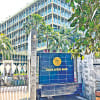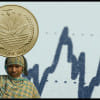‘No rule of game’ in collecting remittance

Some banks are seeing extraordinary growth in remittance inflows thanks to offering at least Tk 4 more than the permitted rate per dollar.
The Bangladesh Foreign Exchange Dealers Association (BAFEDA) and the Association of Bankers Bangladesh (ABB) have stipulated, as per the unofficial direction of the central bank, that a maximum of Tk 116 can be offered per dollar for inward remittance.
But a good number of banks are collecting remittances at Tk 120 to Tk 125 per dollar.
Industry insiders said the banks offering rates higher than the Bafeda-ABB one are receiving more remittances.
Between November 1 and 17, Islami Bank received the highest remittance of $206 million, followed by Pubali Bank ($122 million), Al-Arafah Islami Bank ($66 million), Brac Bank ($52 million) and Eastern Bank ($48 million).
Mohammad Ali, managing director and chief executive officer of Pubali Bank, denies doing anything underhand to attract higher remittance.
The bank saw a high growth in remittance due to offering gifts to their regular clients.
"Still, there is a mismatch of demand and supply of dollar," he added.
During the period, the remittance receipts of state banks were below $35 million: Janata Bank received $29.02 million, Sonali $19.85 million, Agrani $26.27 million and Rupali $3.34 million.
Bangladeshi expatriates are sending remittances through those banks that are offering high dollar rates, said Md Abdul Jabbar, the MD and CEO of Janata Bank.
"But we are unable to do so because of complying with the Bafeda-ABB rates," he added.
During the first 17 days of the month, Mutual Trust Bank received $20.98 million as remittance, City Bank received $25.13 million and Prime Bank received only $3.06 million. All three banks' officials said the inflows were much lower than in previous months.
"There is no control in the forex market now," said Syed Mahbubur Rahman, the MD and CEO of Mutual Trust Bank.
Industry insiders blamed the central bank for the indiscipline in the forex market. That indiscipline has helped hundi, an illegal cross-border transaction, to flourish.
During August and September, the Bangladesh Bank conducted inspections in some banks due to their alleged involvement in dollar rate manipulation.
In October, the BB treasury heads of ten banks due to imposing high dollar rates.
Those strict moves of the central bank contributed to constricting the inflow of remittance, according to bankers.
For instance, the remittance inflows rose in October due to relaxed monitoring of the BB, as per industry insiders.
The Bafeda-ABB model of fixing the dollar rate has failed to cool down the forex market, said Zahid Hussain, a former lead economist of the World Bank's Dhaka office.
"A floating exchange rate is very essential for our forex market right now. If it is not possible then the central bank should introduce a managed floating exchange rate."

 For all latest news, follow The Daily Star's Google News channel.
For all latest news, follow The Daily Star's Google News channel. 








Comments